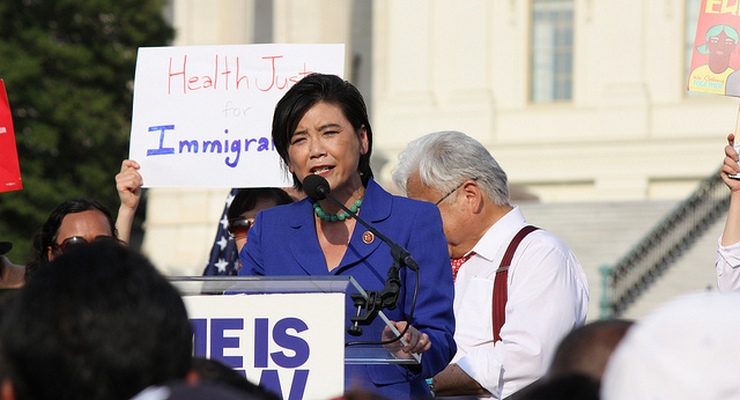
U.S. Rep. Judy Chu (D-Pasadena) reintroduced the National Origin-Based Antidiscrimination for Nonimmigrants (NO BAN) Act.
The bill, co-sponsored by 137 House members and led in the Senate by Sen. Chris Coons (D-DE), strengthens the Immigration and Nationality Act to prohibit discrimination on the basis of religion and restores the separation of powers by limiting overly broad executive authority to issue future travel bans. Supporters of the NO BAN Act issued the following statements:
“The Muslim Ban was a hateful stain on our nation. Inspired only by bigotry and not any genuine national security concerns, the ban served only to separate families while stoking bigotry, xenophobia, and Islamophobia. That is why I was so grateful when President Joe Biden took action on his first day in office to rescind all versions of this ban,” Chu said.
“However, we cannot risk letting prejudice become policy again,” she said. “That is why I am once again introducing the NO BAN Act to update our laws. By requiring actual evidence of a threat before there can be any such broad-based bans like this, the NO BAN Act ensures that future presidents will not be able to ban people solely because of their religion. I’m proud that this bill was passed by the House last Congress and, with the help and leadership of Sen. Chris Coons, I hope to see it passed again and brought to the President’s desk soon.”
During the 2016 presidential campaign, President Trump called for a ban on Muslims entering the country.
The court of appeals twice shot down attempts by Trump to institute the ban.
The Supreme Court ultimately upheld the third version of Trump’s Muslim ban on June 26, 2018, which indefinitely bans travel from certain countries, including five Muslim-majority countries – Iran, Libya, Somalia, Syria, and Yemen. In 2018, the first year the ban was in full effect, the State Department rejected approximately 37,000 visa applications from the banned countries. In 2017, fewer than 1,000 were rejected.
The NO BAN Act amends the Immigration and Nationality Act’s nondiscrimination provision to explicitly prohibit discrimination based on religion and to apply all nondiscrimination protections to immigrant and nonimmigrant visas alike. It also limits the president’s overly broad authority to issue future bans by requiring suspensions and restrictions to be temporary, based on credible facts narrowly tailored to a compelling interest, and circumscribed to the least restrictive means possible. It also requires the president to consult with the secretaries of State and Homeland Security before restricting or suspending the entry of individuals, and increasing mandatory reporting requirements to Congress and provides a presumption in favor of granting humanitarian and family-based waivers.














 0 comments
0 comments


